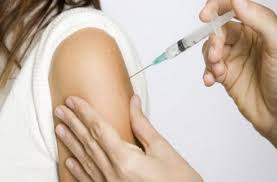Ethan Lindenberger is only 18 years old, but he is already a hardened campaigner.
By Ana Lazaro
He managed to get vaccinations, against his mother’s wishes. Now he is fighting against the spread of anti-vax movements.
“The message is very simple: the misinformation is very dangerous. And that people misinformed is not bad people. They have just been given bad information and given false information and ideas, and you need to fight that with better information”.
He has come to Brussels to take part in the Global vaccination summit.
In Europe, scepticism about vaccination has being growing during in recent years.
In countries like France, 45% of people think that vaccines are not safe. Other countries as Greece and Croatia follow closely.
Social networks have become a major platform for anti-vaccine campaigners.
One way to tackle this consists on highlighting information and burying bad content.
“It means that it still there but it is harder for people to find. Which is something that actually is potentially doable technically by platforms at this stage,” says Maud Sacquet, Public Policy Manager, Mozilla.
The idea that vaccines are not safe or could have serious side effects has gained ground and is reversing decades of disease prevention.
The European Union and the Worth Health Organisation work together to defend them.
“Vaccines are very safe. And most of the children vaccines are sort of old-vaccines that have been around for 40 or 50 years, have been vaccinating millions and millions of people across the world and Europe. They have saved millions of lives,” Patrick O’Connor from World Health Organisation explains.
It could be urgent, as infectious diseases like measles or rubella are on the rise in many European countries.



